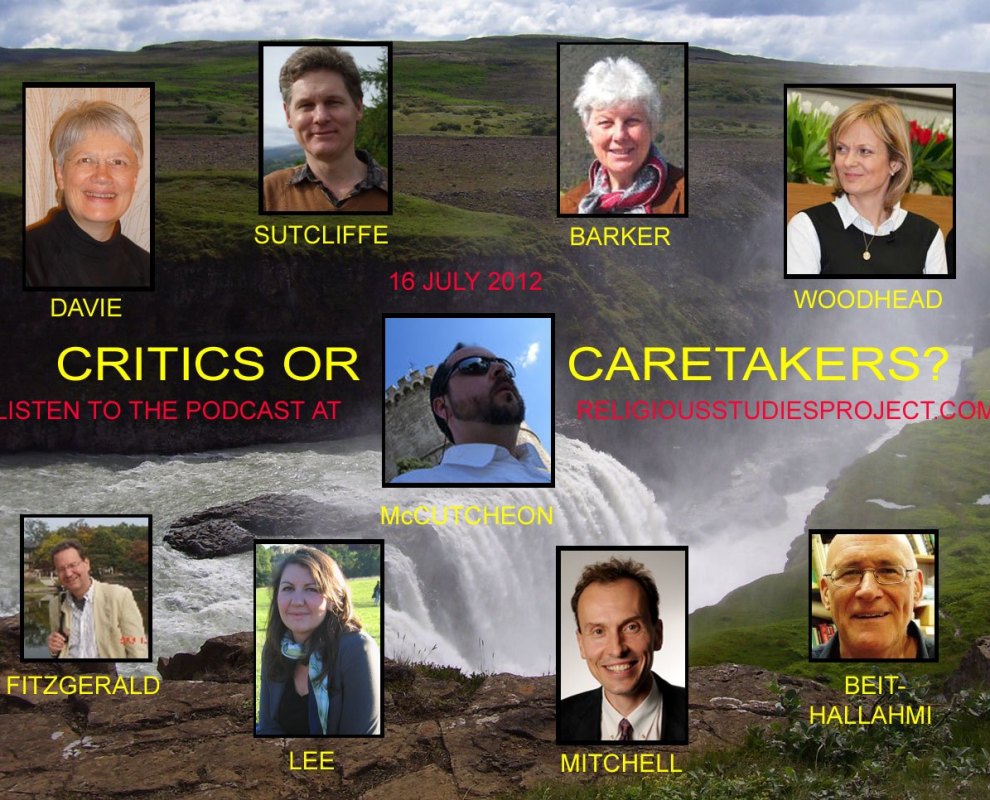If you have been listening to the podcast for the past couple of weeks, you will be aware that we are about to go on a brief hiatus until September, to give our listeners some time to catch up, and to give Chris and David a chance to catch up on some of their other commitments. The website will still be releasing content on a less regular basis, and we have at least one more roundtable discussion for your delectation over the coming weeks. We will also be re-releasing our ‘editors favourites’ from the first batch of podcasts – so there will still be plenty of material to keep you occupied. However, before we ‘leave you’ we wanted to go out with a bang, and it is therefore with pleasure that we present the second of our compilation episodes.
As with the first of our compilation episodes (What is the Future of Religious Studies?), every time David, Chris and Jonathan have conducted an interview, they have been asking the interviewees an additional question: ‘Should Scholars of Religion be Critics or Caretakers?’ The result is this compilation of differing opinions and interpretations of key terms from eight top scholars from a variety of disciplines—sociology, psychology, religious studies, theology—on how academics should position themselves in relation to the groups and individuals that they study.
However, we decided to push things one step further with this one. The inspiration for this episode came from one of Russell McCutcheon’s works which we had encountered through the undergraduate Religious Studies programme at the University of Edinburgh, entitled Critics Not Caretakers: Redescribing the Public Study of Religion. We thought it would be an excellent idea to invite Russell to respond to the opinions of the other scholars in this podcast, and are very grateful that not only was he happy to be involved, but he sent a ten minute response recording. Enjoy.
Featured in this podcast (with links to their previously released interviews):
- Professor Grace Davie, University of Exeter
- Dr Steven Sutcliffe, University of Edinburgh
- Professor Eileen Barker, London School of Economics
- Professor Linda Woodhead, Lancaster University
- Dr Timothy Fitzgerald, University of Stirling
- Dr Lois Lee, University of Cambridge/Goldsmiths, University of London
- Professor Jolyon Mitchell, University of Edinburgh
- Professor Benjamin Beit-Hallahmi, University of Haifa
- Professor Russell McCutcheon, University of Alabama
Some of these academics have already appeared on the Religious Studies Project, others’ interviews have yet to be released, and others’ are still on our ‘to-do’ list, yet each has their own unique perspective to offer, and we hope that you appreciate this compilation. We apologise for the UK-centric nature of these recordings… that’s just what happened in this instance.
Whether you stick with us over the break, or come back to us in September, we can assure you that we have another great lineup in store. Future podcasts include interviews with David Morgan (Duke University), Kim Knott (Lancaster University), Robert Orsi (Northwestern University), Gordon Lynch (University of Kent), Suzanne Owen (Leeds Trinity University College), J Gordon Melton (Baylor University), Brian Victoria (Antioch University) and more…
Please keep telling people about us… if you are a lecturer, please consider incorporating this material into your courses… and please keep supporting us on Facebook and Twitter.
Thanks for listening!

















